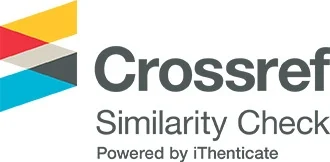Exempting the Bride from Ghusl al-Janābah for the Purpose of Adornment According to Some Mālikī Scholars: A Foundational, Documented, and Critical Study
استثناء العروس من غُسل الجنابة لأجل الزينة عند بعض المالكية "دراسة تأصيلية توثيقية نقدية"
DOI:
https://doi.org/10.65137/sjss.v9.65Keywords:
Janābah, Adornment, Purification (ṭahārah), Acts of worship (ʿibādāt), Mālikī school, WomenAbstract
This research addresses a subtle juristic issue within the domain of purification (ṭahārah), namely: the exemption of the bride from performing the ritual bath (ghusl) after major ritual impurity (janābah) for the sake of adornment according to some Mālikī scholars. Certain later sources attribute to some authorities of the school a concession permitting the bride—if her hair has been styled and adorned to forgo washing her head and suffice with wiping over it, or even with dry ablution (tayammum), with this dispensation sometimes limited to seven days.
This issue raises several questions: the authenticity of its attribution to the Mālikī school, the presence of any textual foundation in the Qurʾān or Sunnah, its position within general legal and juristic principles, and the feasibility of issuing fatwās based on it in present contexts.
The significance of this study lies in its direct connection with the validity of prayer and in highlighting the necessity of verifying transmitted opinions rather than following them uncritically. It also enriches studies on women’s jurisprudence, and underscores the need to regulate contemporary fatwā in accordance with established juristic principles, thereby serving the higher objective of preserving religion and safeguarding acts of worship from invalidity.
The objectives are to gather relevant materials from their primary sources, document and analyze the opinions, discuss their evidences, and weigh them against textual and juristic principles, aiming to determine the soundest ruling through a rigorous scholarly method. The research adopts inductive, analytical, and critical approaches, with careful documentation, evaluation of proofs, and clarification of terms, thereby offering a foundational and critical contribution to Mālikī jurisprudence and serving researchers, muftīs, and students of Islamic law
Downloads
Downloads
Published
Issue
Section
License
Copyright (c) 2025 The Scientific Journal of Sharia Sciences

This work is licensed under a Creative Commons Attribution-NoDerivatives 4.0 International License.





